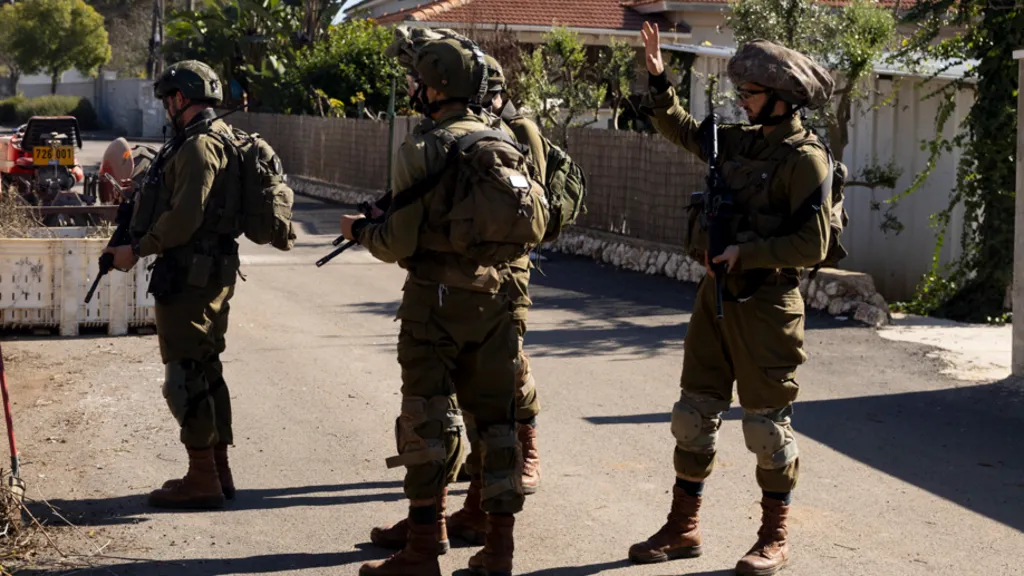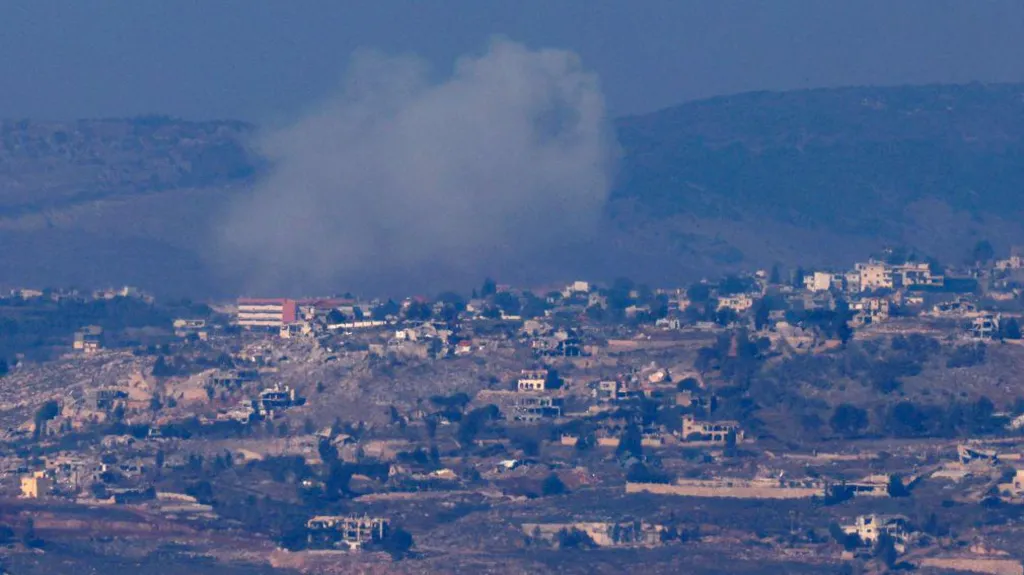Weaponizing Hezbollah in the Iran-Proxy Conflict
"The indiscriminate nature of Hezbollah's rockets does not distinguish between Jews and Muslims.""In targeting innocent civilians, Hezbollah is an enemy for all people."Hamid Naim, mayor, Tarshiha, Arab Israeli/Lebanon border town"Israel will never accept another attack like that of October 7.""A comprehensive political solution is essential, one that not only addresses immediate security needs but also lays the groundwork for enduring peace.""There is no six-day war anymore.""We're already in a regional war. We cannot say Iran is not interested in a regional war.""Our goal is to create a stable environment where such threats become a thing of the past, ensuring safety and prosperity for all."Lieut.-Col. Sarit Zehavi, founder, ALMA Research and Education Centre, Ma'alot-Tarshiha, Israel
 |
| Israeli soldiers on patrol in northern Israel, near the border with Lebanon Getty Images |
The ceasefire that was agreed upon by Israel and Lebanon's Hezbollah, following over a year of cross-border bombings seemed to be over, just as it began, with Hezbollah operatives appearing mere hours after the signing in areas that were to have been off limits to them. And soon enough rockets followed, with Hezbollah claiming that Israel had abandoned the ceasefire. Diplomatic overtures on the part of interlocutors and the principals continue even as weapons smuggling operations continue to thrive while Jewish and Arab homes are hit in civilian farming areas.
Communities that were vibrant and productive along the border lie in ruins. With news of the ceasefire in its infant stages, displaced Israelis who were forced to leave their homes in their tens of thousands for temporary haven far from the border hesitated with both yearning to return and the foreboding that no ceasefire would keep them safe from Hezbollah's deadly assaults. Their instincts proved correct, despite the government's intention to neutralize the area in the interests of their safe return. Communities within the Lebanese border have fared no better.
 |
| Smoke rose from the Lebanese border town of Khiam following an Israeli strike AFP |
Stealth movement of weapons from Iran to Lebanese Hezbollah flouts any hopeful notion of a stable ceasefire. The agreement mandating Hezbollah retreat north of the Litani River for the creation of a buffer zone to stabilize the area, was broken immediately the ceasefire was agreed. Israelis remain doubtful of the commitment to action of the United Nations Interim Force in Lebanon (UNIFIL), given their abysmal failure to do just that in the past.
Lebanon itself has been in a state of destabilization for decades, its economy in ruins, its disparate ethnic, sectarian, tribal factions in a constant state of crisis management, with Hezbollah operating as a state-within-a-state, its militias more focused and better armed than the Lebanese official military which under UNIFIL the terrorist group was meant to hand over its arms to the military and to fuse its units with the military under the military command. None of this ever occurred, and Hezbollah developed a 'political' arm now part of the governing council of the country.
While Hezbollah always declared itself to be independent of the Lebanese military which itself was incapable of disarming the Iranian proxy, were it at this point to meld with the military for political and survival purposes that would create another problematical dimension to the situation. Israel's conflict is not with Lebanon, but with Hezbollah where its focus is on defeating Hezbollah, not attacking and destabilizing Lebanon.
Northern Israel has been under Hezbollah fire of missiles since October 8 2023. Hezbollah increasingly wavered from targeting Israeli military, to target civilian infrastructure, leading the human toll of the conflict to be exacerbated. Anti-tank missiles with their low altitude and accuracy have wrought havoc on farming villages in Israel. "We're dealing with attacks aimed squarely at civilians", noted, Lieut.-Col. Zehavi.
Towns like Israel's northern Kiryat Shmona have been hard hit; some 90 percent of its population evacuated leading to deep social upheaval of communities, disrupting families, affecting support networks. As for Hezbollah's strategy, it is one of militarization of civilian areas, specifically within Shia Muslim communities. There, houses are commandeered as weapon depots, military structures and tunnel entry points. Mirroring the strategy infamously employed by Hamas in Gaza.
In Tarshiha, northern Israel, the border town is continually struck by Hezbollah drones. Over 1,300 incidents of missiles striking targets in northern Israel have been reported, mostly affecting private residences, not military targets. What is envisioned is the future possibility of a political, diplomatic solution for peace with a view toward long-term recovery for both sides of the border. For this to be achieved, the first step would be to put a stop to Iran's weapons-smuggling to Hezbollah before security can be contemplated.
 |
| An Israeli Air Force AH-64 Apache attack helicopter flies over migrating cranes in northern Israel near the border with Lebanon on Nov. 25. Jalaa Marey / AFP |
Labels: Conflict Ceasefire, Disruption of Farming Communities, Islamic Republic of Iran, Israel-Hezbollah Conflict, Population Displacement, UNIFIL
0 Comments:
Post a Comment
<< Home